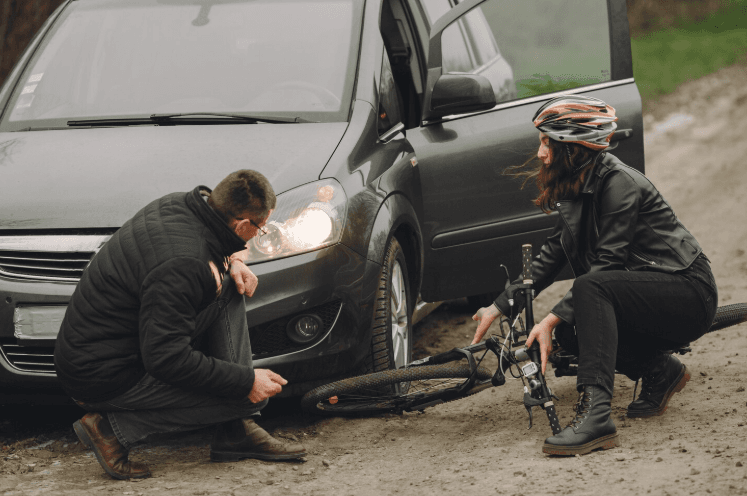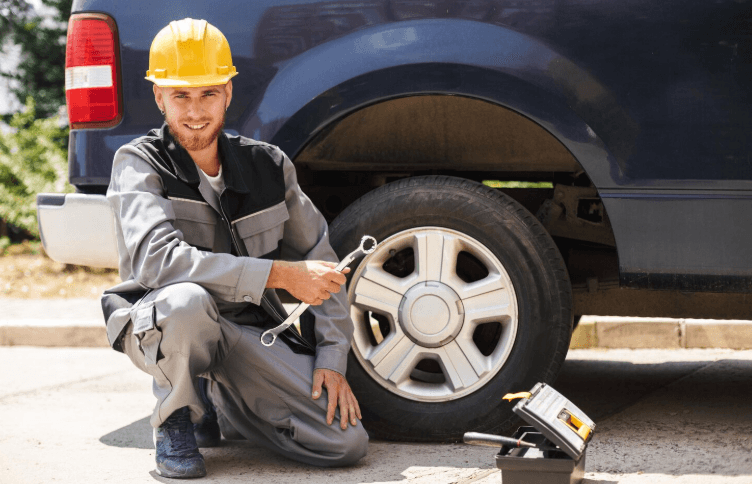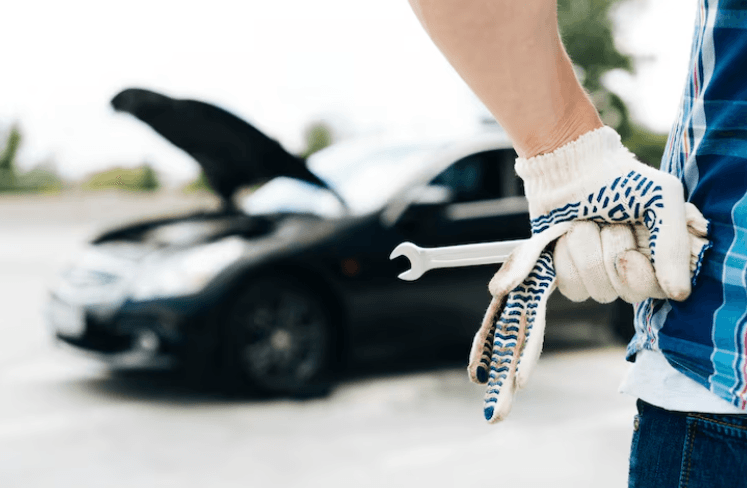Running out of gas is a frustrating experience under any circumstance. But when your wallet feels as empty as your gas tank, it can feel like a nightmare. However, there’s no need to panic. Resourcefulness and a little know-how can get you back on the road without spending a dime. This guide explores five effective strategies to navigate this situation, so you can turn a potential disaster into a learning experience. Need immediate assistance? Don’t let an empty tank leave you stranded. For instant car repair service, turn to Crossroads Helpline today.
Assess Your Situation and Secure Your Safety

Before diving into solutions, take a moment to assess your surroundings. Are you stranded on a busy highway, a quiet back road, or somewhere in between? This will determine the safest course of action. Here’s what to prioritize:
- Safety First: If you’re on a high-traffic road, pull over as far to the right as possible, ideally onto the shoulder. Turn on your hazard lights to alert other drivers. It might be tempting to coast to the nearest exit, but this could be dangerous and leave you stranded in a less populated area.
- Gather Information: Check your phone’s battery level. If it’s low, try to conserve it for calls for help. Look for landmarks or mile markers to help pinpoint your location. This information will be crucial when seeking assistance.
- Inventory Your Resources: Do you have a roadside assistance plan included in your car insurance? Now’s the time to check your policy details. It’s also a good idea to keep a basic emergency kit in your car, which might include a flashlight, flares (if legal in your area), a reflective safety vest, and a non-perishable snack and water bottle.
The Power of Community: Flagging Down Help For Running out of gas
While relying solely on strangers might seem uncertain, in many situations, the kindness of people on the road can be a lifesaver. Here’s how to effectively flag down help:
- Visibility is Key: During the day, hold a brightly colored object like a cloth or a piece of cardboard out your window. At night, use a flashlight or reflective material to make yourself seen by oncoming traffic.
- Be Selective: Choose vehicles with a single occupant as they might be more likely to offer assistance. Avoid flagging down large trucks or motorcycles due to potential safety concerns.
- Communicate Clearly: Hold a clear and concise message, like a handwritten sign on a piece of cardboard, stating “Running out of gas. Need Help.” Be polite and express your gratitude if someone stops to assist.
The Barter Option: Trading Skills or Services
If flagging down help proves unsuccessful, consider offering a service or a small item you might have on hand in exchange for running out of gas. Here’s how to approach this option with tact:
- Identify Potential Resources: Do you have any relevant skills that someone might be willing to pay for in gas? Are you handy with basic repairs or car maintenance? Can you offer to help with errands or chores?
- Be Upfront and Transparent: Explain your situation to the potential helper and clearly state what service or item you’re offering in exchange for gas.
- Negotiate Fairly: Research the average gas price in your area to ensure your offer is reasonable.
Fuel From a Friend (But Plan It Right)
If you have a friend or family member nearby, calling them for assistance might be the solution. Here’s how to make this option work with limited resources:
- Calculate the Distance: Before calling for help, estimate the distance your friend needs to travel to reach you and back. This will help you determine the amount of running out of gas you’ll realistically need.
- Conserve Battery: If your phone battery is low, consider walking a short distance to a friend’s house or a public phone booth (if available) to explain your situation.
- Repay the Favor: Once back on the road, prioritize repaying your friend for the gas. Offer to fill up their tank, cover the cost later, or return the favor when they need help.
The Walk of Determination: Reaching a Gas Station on Foot
This option might seem daunting, but if you’re stranded in a relatively safe and populated area, walking to a gas station could be your best solution. Here are some key considerations:
- Safety First: Choose well-lit, populated sidewalks and avoid walking alone at night.
- Plan Your Route: Use your phone’s map function (if it has battery) to identify the nearest gas station and plan your walking route.
- Lighten the Load: If possible, leave unnecessary items in your car to make your walk easier and faster.
Beyond the Immediate Fix: Preventing Future Stranded Situations
Running out of gas can be a hassle, but it’s also a valuable learning experience. Here’s how to use this situation to prevent future mishaps:
- Fuel Gauge Awareness: Don’t rely solely on the low-fuel warning light. Familiarize yourself with your car’s fuel gauge and its estimated range. Make it a habit to refuel when the gauge reaches a quarter tank or less.
- Trip Planning and Budgeting: Before embarking on a long trip, map your route and identify gas stations along the way. Factor in potential detours and estimate your fuel needs based on your car’s mileage.
- Emergency Gas Can: Consider carrying a small, approved gas can in your trunk. Remember to fill it before a long trip and ensure it’s stored safely following local regulations.
- Roadside Assistance: A roadside assistance plan can be a lifesaver in situations like this. Review the details of your existing insurance plan or consider adding roadside assistance coverage.
- The Buddy System: If you’re planning a long journey, especially on unfamiliar roads, let a friend or family member know your estimated arrival time and route. This allows them to check in if they don’t hear from you and potentially offer assistance if needed.
Conclusion
Running out of gas with an empty wallet can be a stressful situation. However, by staying calm, assessing your surroundings, and utilizing these strategies, you can overcome this challenge. Remember, this experience can be a valuable opportunity to learn from your mistakes and become a more prepared driver. By incorporating the preventative measures outlined above, you can minimize the chances of facing a similar situation in the future.
Most importantly, encountering an unexpected setback can sometimes lead to unexpected kindness from strangers and a renewed appreciation for resourcefulness and community. When the fuel gauge hits E and your wallet feels light, it’s time to think fast. Explore our tips for handling this situation, and remember, for rapid car repair services, rely on Crossroads Helpline to get you back on the road in no time.





